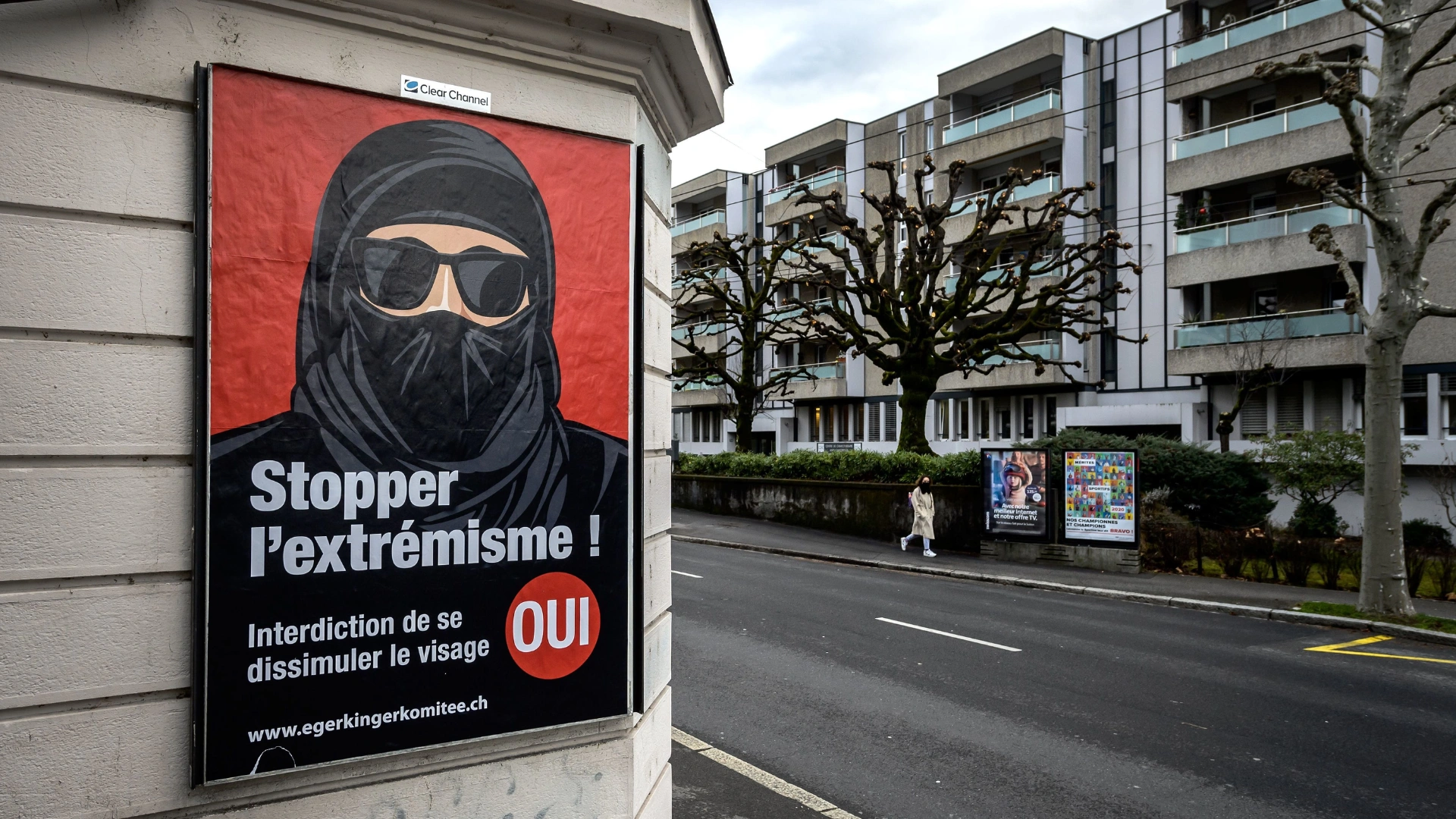In Switzerland, the wearing of face coverings, such as niqabs and burqas, in public places is officially prohibited as of January 1, 2025. Often known as the “burqa ban,” the rule prohibits the wearing of any facial covering that covers the mouth, nose, or eyes. Fines of up to 1,000 Swiss francs (about $1,100) will be imposed on violators.
51.2% of voters supported the ban in a 2021 referendum, which was narrowly approved. Introduced under the slogan “Stop Extremism,” by the right-wing Swiss People’s Party (SVP), the initiative raised serious concerns about women’s rights and religious freedom. Critics argue that because the measure was bundled under a more general public safety umbrella, it unfairly targets Muslim women.
The Swiss Parliament passed the law in September 2023, which formalized exceptions for specific scenarios. Face coverings are allowed for health reasons, such as medical masks, cold weather, and safety purposes. They are also allowed in places of worship, during artistic performances, and in advertising. However, the ban applies in public spaces and private buildings accessible to the public, with few exceptions.
‘Dark Day’ for Muslims?
Studies at the University of Lucerne show that nearly no one in Switzerland wears a burqa, and only about 30 women wear niqabs. Muslims constitute about 5% of Switzerland’s 8.6 million population, mostly from Turkey, Bosnia, and Kosovo.
Central Council of Muslims in Switzerland considered it “a dark day” for Muslims while accusing it of promoting exclusion and inequality. Amnesty International also condemned it as a breach of women rights, including the freedom of speech and religion.
Among several European countries such as France, Austria, Denmark, and the Netherlands, Switzerland joined the list in banning full-face coverings in public. It was France, however, that led the wave of these bans since 2011, ascribing secularism as one reason for doing so.
Those in favor of the bans say it is essential for the protection of cultural identity and to curb the spread of radicalism. The opponents believe such measures enhance stereotyping and intensify differences. According to an Open Society Justice Initiative report, these bans come from nationalist and far-right politics.
The Swiss system of direct democracy obliges citizens to vote regularly on national and regional issues, and this referendum makes clear the challenge of balancing the public will with the rights of minorities. For proponents, the ban serves integration and security purposes, but for the opponents, it is part of a broader wave of anti-Muslim sentiment sweeping across Europe.
ALSO READ: Cybertruck Played Key Role in Containing Explosion Damage, Law Enforcement Officials Report




















